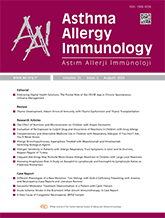


The thymus is an organ that plays a critical role in the production of T-cells, which are important for immune functions. Serious consequences can arise if thymic homeostasis is not properly regulated. Therefore, it is necessary to fully understand the thymic environment that induces and supports T-cell development. The most severe thymic defects causing thymic aplasia, as well as disorders affecting the development and function of thymic stromal cells, result in immunodeficiency and autoimmunity. Thymic transplantation can save the lives of athymic patients with severe T-cell lymphopenia and provide the necessary immune reconstitution to prevent infectious complications. Early diagnosis and prophylactic treatments will reduce the frequency of infections in affected individuals as the use of neonatal screening programs for T-cell deficiencies becomes more widespread.